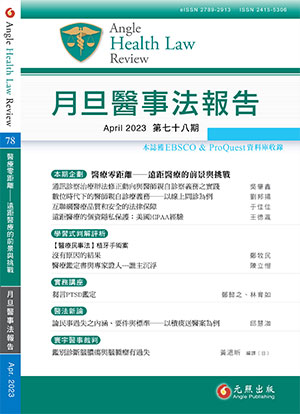醫療行為中的坦誠義務:句句屬實、絕無虛言?(一)【全球瞭望】 試閱
Duties of Candour in Healthcare: The Truth, the Whole Truth, and Nothing but the Truth? (I)
在創設了法律上與職業上的坦誠義務後,開始要求臨床醫療人員與醫療組織在療程出錯時,對病患及其家屬保持誠實。本文將解釋這兩者義務創設的背景,並分析坦誠的概念、道歉所扮演的角色,以及遵循法規的相關證據。我們將探討:將坦誠納入法律規定是否能妥善地反應損害背後的真相,以及其作為表達誠實的有力展現。然而,在複雜的專業文化背景、資金不足的醫療系統中、以及潛在的訴訟壓力及法規調查壓力下,想要坦誠相見並不容易。在當前的「醫療與照護法案」提案中,提議創設調查的「安全區」將禁止揭露提交給調查病安事件的獨立外部機構的資料,此舉將破壞坦誠相見的可能。本文認為此舉在原則上是錯誤的,在實踐中也存在相當大的問題,因此反對此提案。坦誠應當是一項被尊重的基本原則,不僅僅適用於提供醫療服務的人,也同樣適用於調查病安事件的人。受害病患及其家人有得知全部真相的權利。
The creation of professional and statutory duties of candour has formalised the requirement for clinicians and healthcare organisations to be honest with patients and families when treatment has gone wrong. This article explains the background to creating both duties, analyses the concept of candour, the role of apologies, and considers evidence about compliance. It argues that making candour a statutory requirement appropriately reflects the ethical imperative of telling the truth about harm and is a powerful signal for honesty. However, being candid is not easy in the context of complex professional cultures, the realities of delivering care in under-funded health systems, and in the shadow of possible legal and regulatory proceedings. Proposals in the current Health and Care Bill to create investigatory ‘safe spaces’ which prohibit the disclosure of information submitted to the Health Service Safety Investigations Body undermine candour. This article argues against such proposals, which are both wrong in principle and highly problematic in practice. Candour should be respected as a cardinal principle governing not only the conduct of those providing care, but also those who investigate such incidents. Harmed patients and their families deserve to know the whole truth.
114-125






